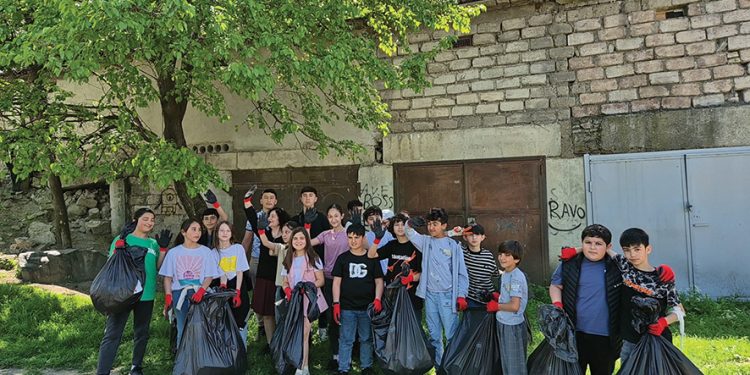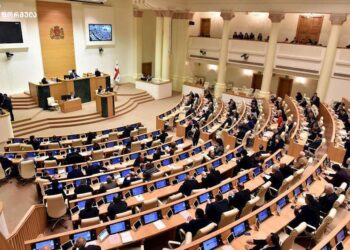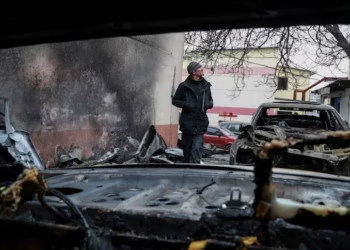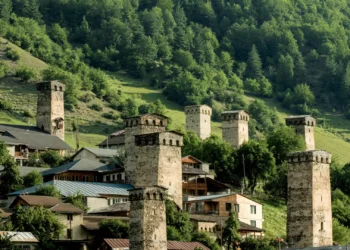On April 17-19, the third stage of the joint cleaning series involving schoolchildren, teachers, and the environmental charity Sadagi took place. This stage was implemented in collaboration with partner schools of the USAID Civil Education Program and with the support of the German organization GIZ.
67 schools from four regions of Georgia, Adjara, Imereti, Kvemo Kartli, and Kakheti, participated in this cleaning stage. A total of 3,657 students and their teachers took part in the third stage of simultaneous cleanups. Overall, the number of students and teachers participating in all three stages has exceeded 6,000.
In this article, Sadagi team members share insights about the schools with which they cleaned pre-selected school areas in four regions of Georgia.
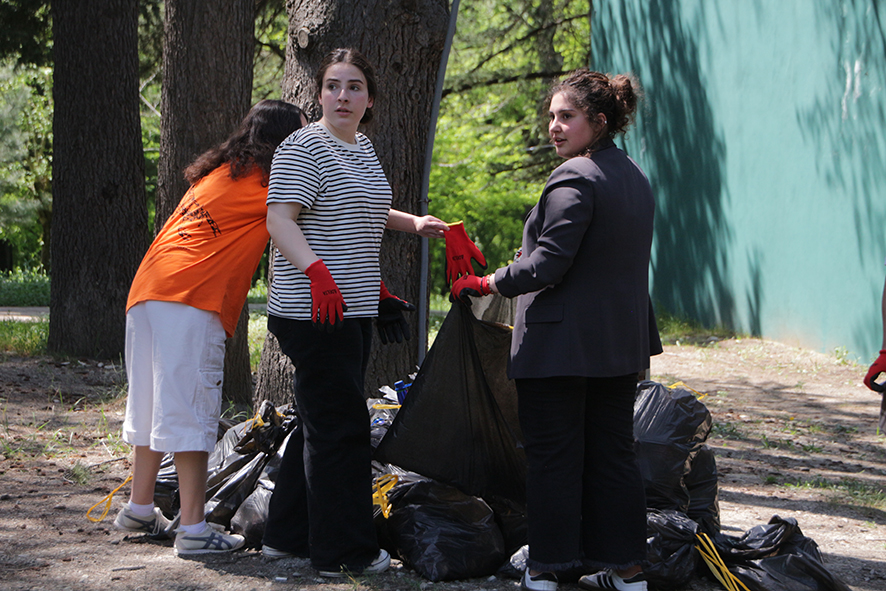
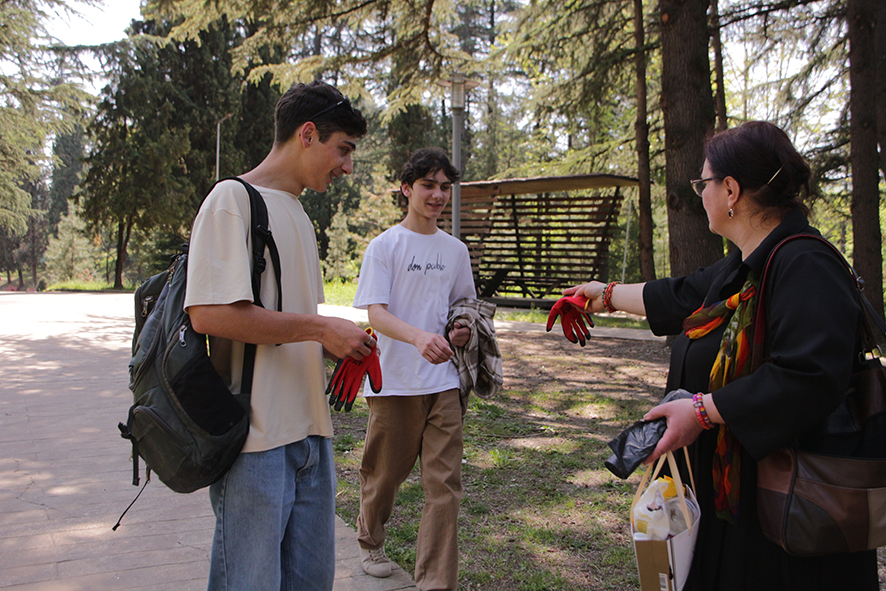
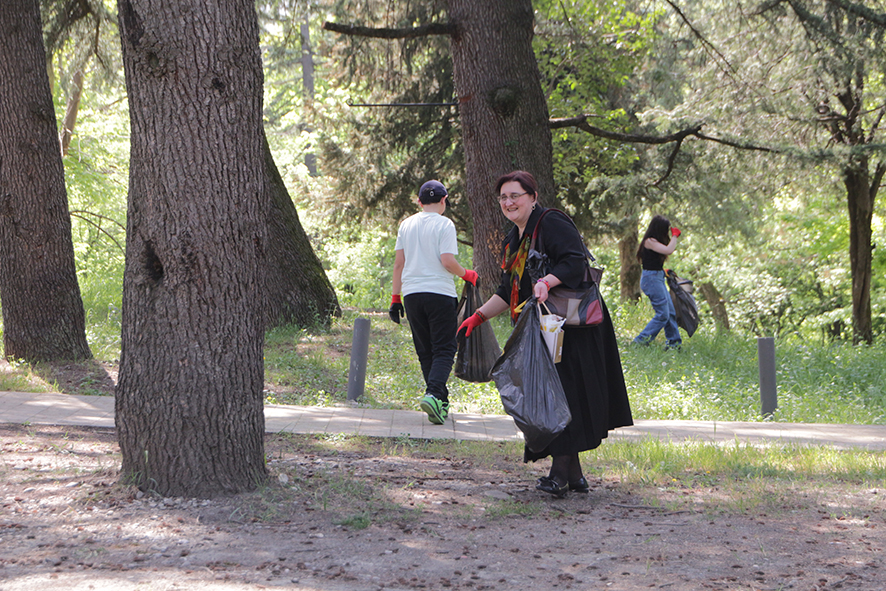
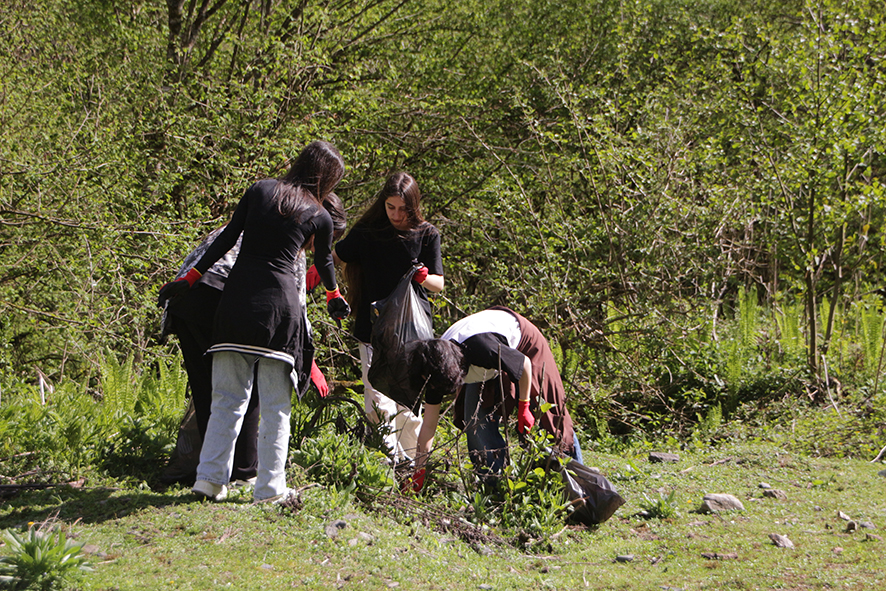
Adjara
Nazi Kochalidze, a civil education teacher at Tsikhisdziri School in Kobuleti municipality, is an amazing person. His students exceeded all our expectations, diligently and cheerfully arranging a huge lawn on the beach and roadside bamboo slopes. Before the cleanup, they held a performance at the entrance of Petra Castle—with smart and beautiful posters, interesting speeches, and phrases like “This country is ours!”
The ethos and behavior of Tsikhisdziri students are admirable: they show passionate love for their homeland, understand the logical connection between cleanliness and economic income from tourism, and demonstrate outstanding initiative, zeal, and teamwork.
At Khelvachauri I Public School, the teenagers welcomed us with a good performance. Civic education teacher Gulnara Zakaradze instills love for the environment in her students. They showed us videos and talked about the contribution of each of us to caring for the planet. Then, as a team, they tidied up the schoolyard and surroundings.

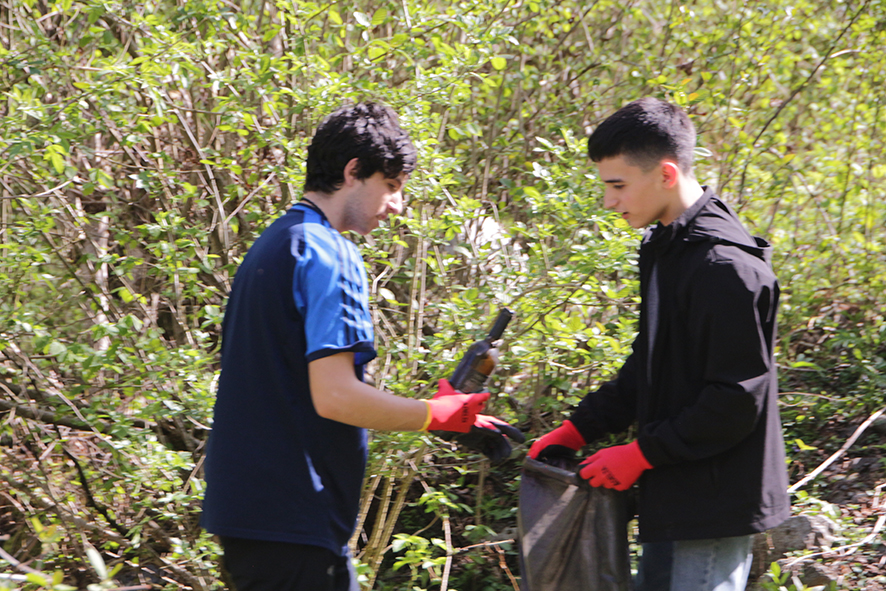


Batumi VIII Secondary School, situated in an impressive building, engaged in the cleanup effort with warmth and energy. School director Ketevan Gvarjaladze-Gorgoshadze and civil education teacher Maka Khintibidze participated actively in cleaning the schoolyard with the children. It was gratifying to contribute to enhancing their learning environment together with the students.
Imereti
Eliso Jibladze, director of Kutaisi School No. 15, along with civil education teacher Natia Kalandadze and the students, decided to tidy up the field near Nikia market. The most difficult part was removing the bags hidden in the hedgerows and tree trunks on the field banks. The students successfully overcame these challenges and celebrated the field and trees’ liberation from debris with a small picnic.
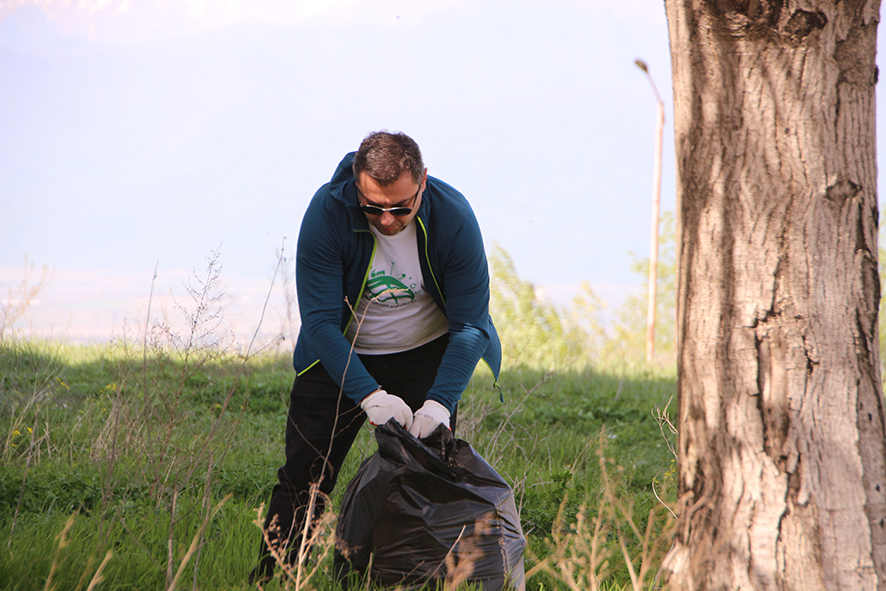

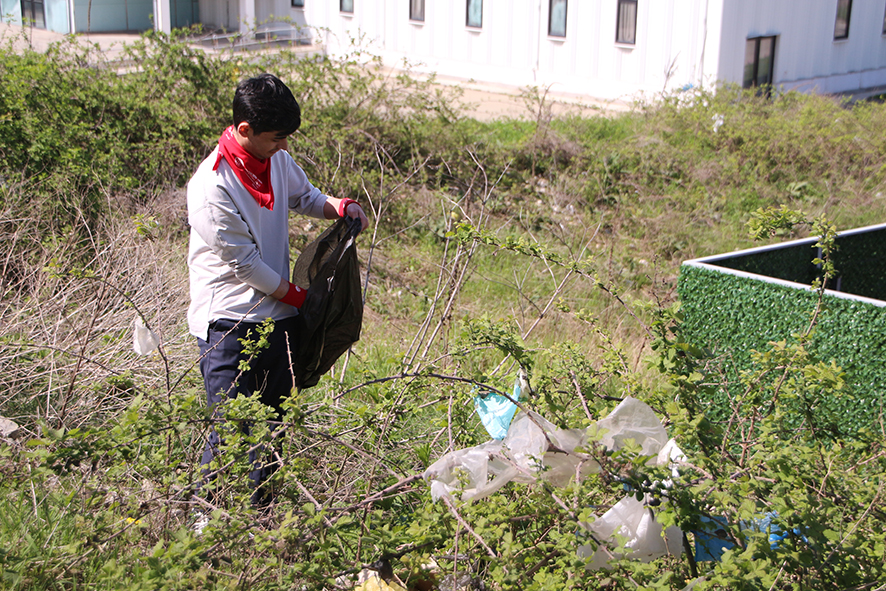
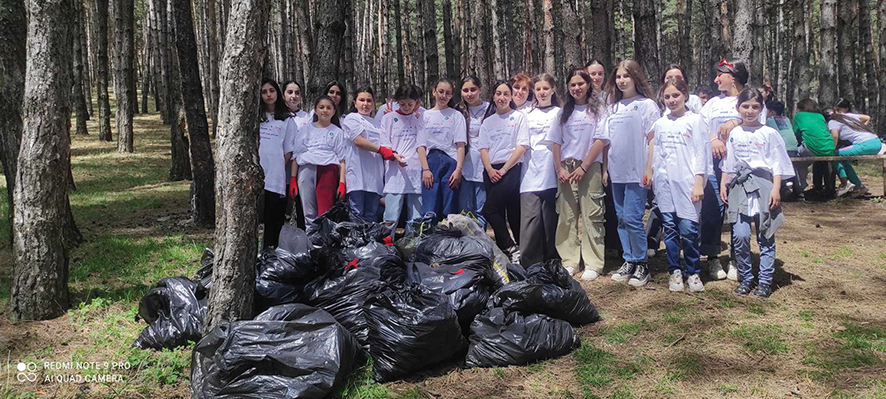
Kakheti
26 schools and 720 children from the Kakheti region participated in the Georgia cleanup. On April 17 in Telavi, along with 50 students from the Merab Kostava IV Public School, our project sponsor Procredit Bank also joined us in the cleanup. Together with the school students, teacher Gvantsa Molashvili, school director Ekaterine Gigitelashvili, parents, and 20 bank employees, we cleaned the children’s square and the sports complex area. The children enthusiastically participated in the cleanup and even started a competition to see who could fill more sacks.
We had an outstanding event in the Pankisi Valley, a fresh, green valley that is especially beautiful in spring, against the backdrop of snowy mountains. At the initiative of Dali Gamkhvetelashvili, a teacher at Akhmeta II Public School, we first visited Duis Public School in Pankisi. We introduced senior students from both schools to each other and engaged in a fruitful discussion about our country’s ecological situation. After the meeting, we cleaned picnic areas near the Khadori Waterfall together. Fifteen-year-old Muslim Borchashvili, a student of Duis Public School, acted as an excellent guide in the Pankisi Valley. Meeting such young people who are deeply connected to their region and homeland, like Muslim, gives us hope for the future and motivates us to do more for our country and future generations.
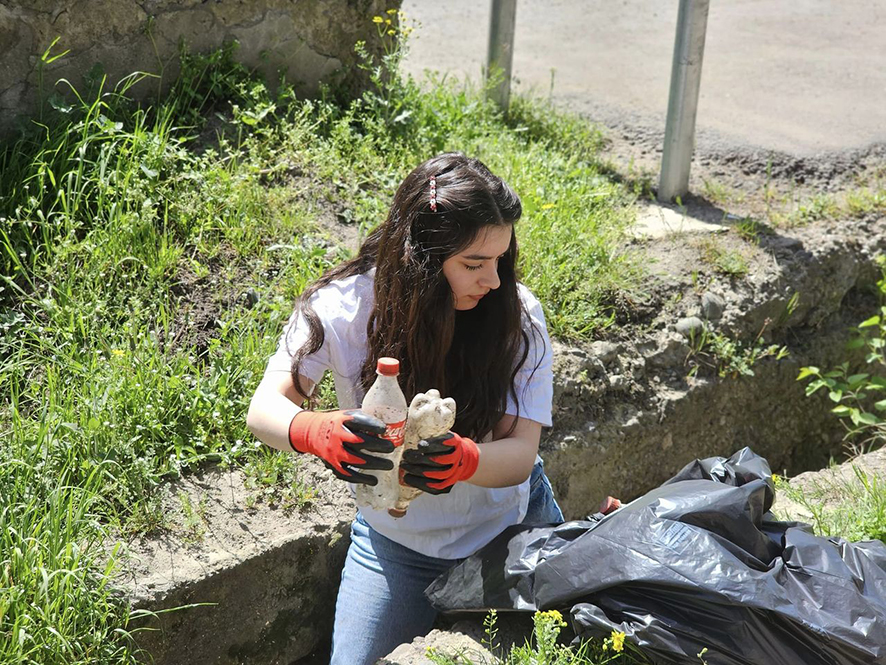
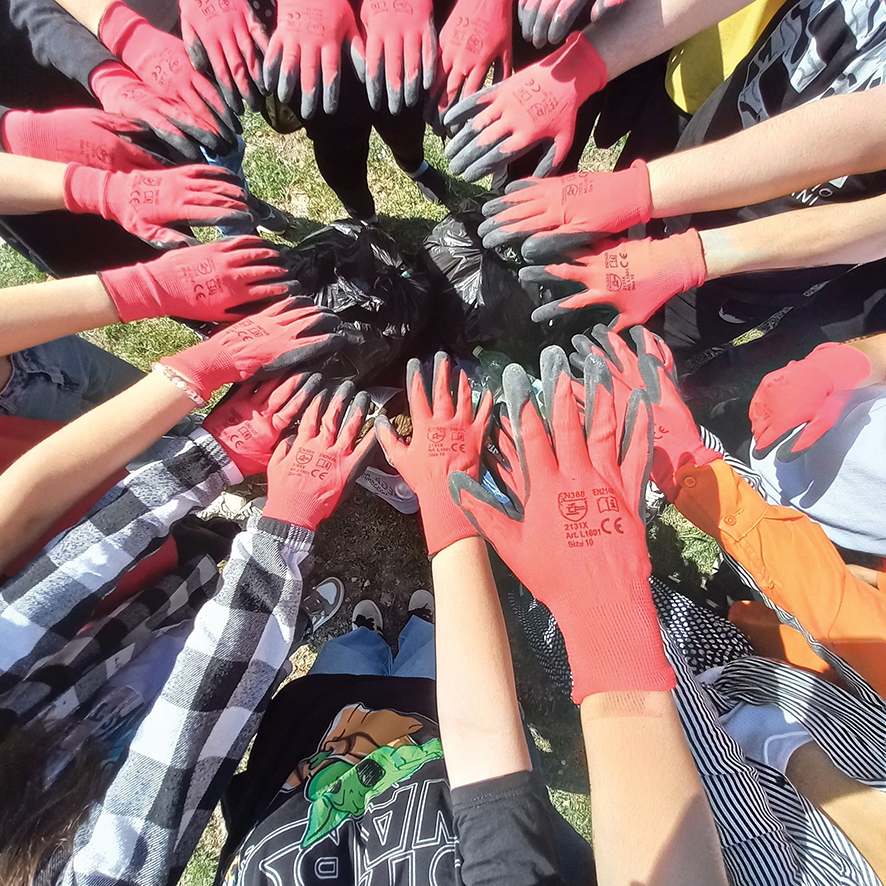


Due to the unfortunate lack of trash cans in Khador, we had to transport the collected waste in the same minibus the students used for transportation. Despite the unpleasant odor of the waste, the children remained focused on cleaning the polluted environment left by others and ensured the full bags were placed in garbage bins several kilometers away.
We also cleaned the Akhtala Resort Park in Gurjaani, alongside Nino Gurashvili, a teacher at the Guram Chilashvili Gurjaani Public School No. 4, and the school’s students. After the cleanup, we shared sweets and discussed the importance of cleanliness for our country. During the conversation, a girl asked why we should pick up garbage that we didn’t put there in the first place. We deliberated on this issue and collectively agreed that while this garbage might not be ours, this country is ours, and it is our responsibility to care for it.
Kvemo Kartli
Dali Kekelidze hosted us at Shulaveri Public School, where, along with educating students, she makes a significant contribution to the village’s cleanliness. The children, many of whom are members of the Ecoclub Ngamente, made presentations and drawings about the environment, talked about global warming and the interaction between humans and the environment, and discussed how they systematically clean their beautiful places. Despite occasional environmental contamination, the children do not lose their enthusiasm, and continue to clean their environment with great zeal and hope.
It was impressive to visit Maradisi village, where we met teachers Keti Angela and Melano Bolkvadze. The schoolyard and football field were quite green and clean. Together, we tidied up the surrounding areas, picking up small waste scattered on the ground, trees, and bushes. Children enthusiastically discussed sports and living in an orderly environment. After a fun cleanup event with the kids, we played football in the field.
Maradisi Village School and the environmental club “May,” established in 2017, have achieved impressive results. The club members have conducted over 150 environmental activities and were awarded a prize for their contribution to sustainable goals in 2021. They earned more than 40,000 GEL through various projects and improved the lives of their fellow villagers.
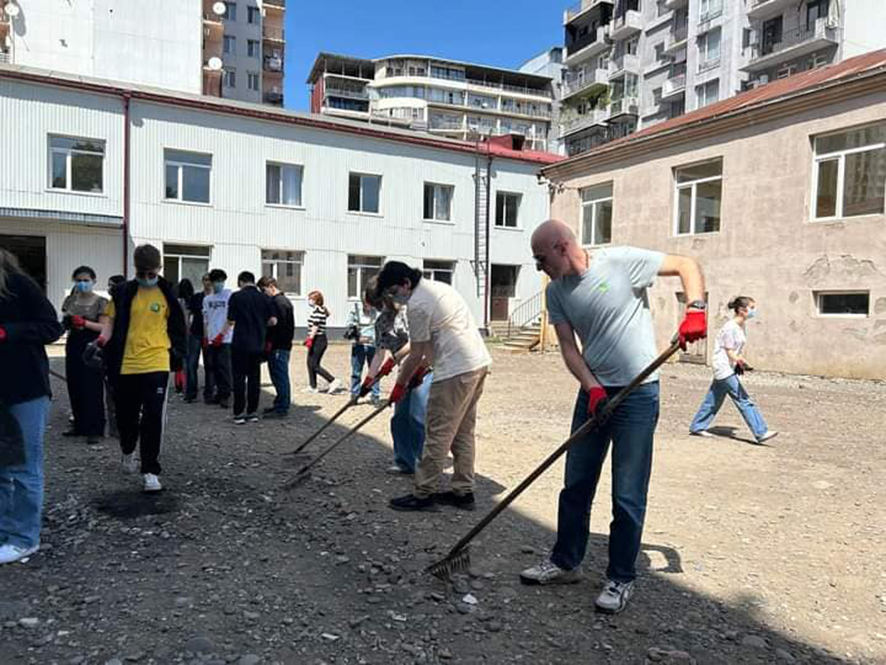
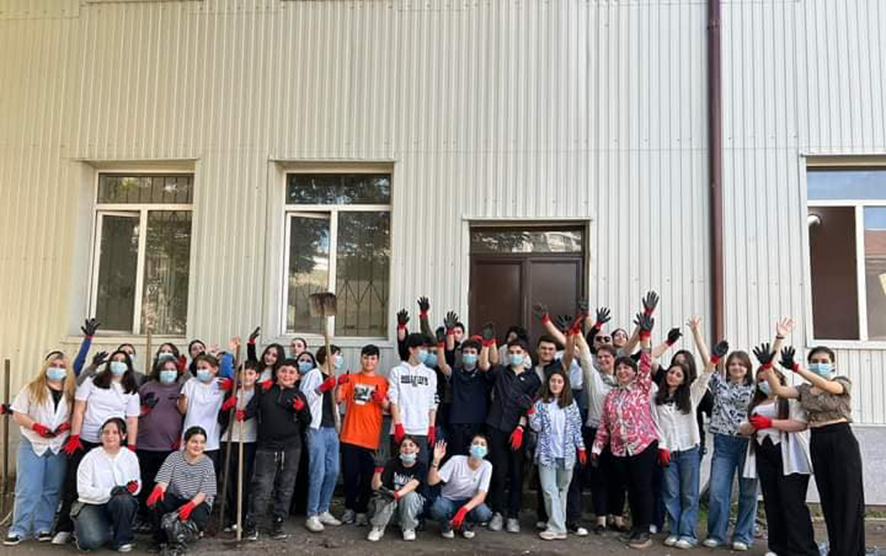
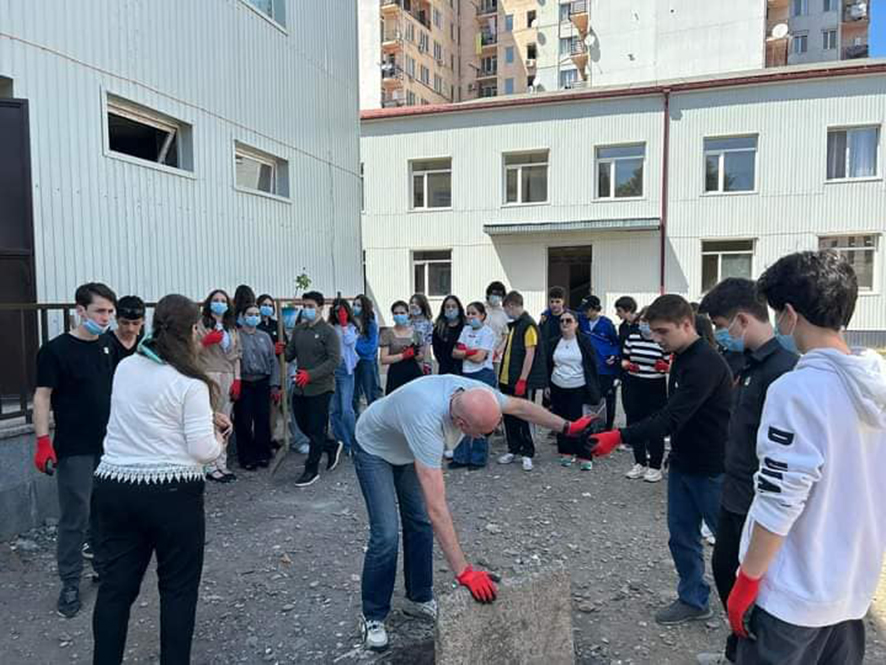
The next day, we cleaned the area near Rustavi School No. 16, where teacher Mariam Jalabadze and her students welcomed us. Mariam teaches in two schools in Rustavi, and she had just come from the second school, where the surrounding area had already been cleaned. The Sadagi team, along with teachers and students, cleaned up the school’s back, fields, and church yard.
The same day, we visited Krtsanisi Village Public School in Gardabani municipality. History and civic education teacher Nino Tsertsvadze and her students met us with great joy. We quickly moved into a huge forest, where glass, tins, bottles, cans, and plastic bags were scattered among the trees and bushes. Students efficiently cleaned their favorite place, almost racing against time. We finished cleaning much earlier than planned, and the students joined hands and ran to clean the Krtsanisi cemetery as well. It was a pleasure to meet such caring and enthusiastic students and teachers.
We would like to thank the sponsors of “I Pack Georgia.” Platinum supporters of the project are Procredit Bank Georgia and Diplomat-Georgia, while silver supporters include Nikora, Finburo, and Elite Electronics. Media endorsers include Palette L and Georgia Today. The number of supporters is increasing, which will enable us to involve the maximum number of schools in sorting events.
We would like to remind readers that “I Pack Georgia” was started by the joint initiative of the National Teacher Award team, its teachers, and Sadagi. The next stage of the sorting series, together with students and teachers, will be held on May 8-10 in schools across Samegrelo, Guria, Svaneti, and Racha-Lechkhumi.
Blog by the Sadagi Team

